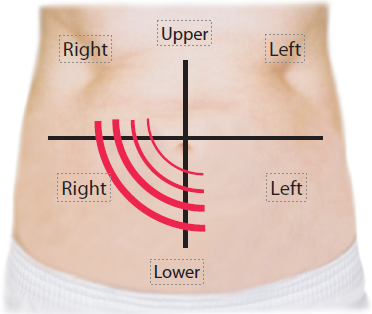What You Can Expect – Safety Checks
The healthcare team will attach an identification (ID) bracelet and allergy bracelet on your wrist. These should be checked by all healthcare team members before giving medication or doing a procedure. Your surgeon will check, mark, and initial the operation site. You will ask all visitors to wash their hands when entering your room.
Home Medication
Bring a list of all the prescribed and over-the-counter medications, vitamins, and herbs you are taking. Your medication may have to be adjusted before your operation. Usually, you take your routine medications with a sip of water the morning of surgery. Medications for diabetes may be changed the morning of surgery because you are not eating. Check with your surgical team about any changes.
Your Pain Plan
Your surgeon and anesthesia provider will talk with you on how to manage your pain during and after your procedure. Anesthesia is medication that prevents you from feeling pain during your procedure. The main types are general, regional, local, epidural, or spinal anesthesia and sedation. The type depends on the complexity of the operation and your overall health.
After your operation, the goal is to minimize pain, keep you moving, and help you heal. Your pain can be controlled with non-medication therapy, like deep breathing, ice, distraction, and walking. For mild to moderate pain, you may use non-opioid medication like ibuprofen and acetaminophen. Opioids may be needed for severe pain that is keeping you from moving.
Decreasing Your Risk for Blood Clots
There is a risk of blood clots after any surgery. The risk depends on how long your operation takes and your personal history. You may have support or compression stockings placed on your lower legs before surgery, or in the operating room. You will be asked to walk soon after surgery to help prevent blood clots. You may also be given medication to decrease your risk for blood clots.
Support Person Updates
Your surgeon or healthcare team will let you know how long the procedure will last. Your family member/support person will be called when the procedure is over.
Your surgical care team may have more specific instructions. Speak with your care team about the best way to prepare for your operation.
















